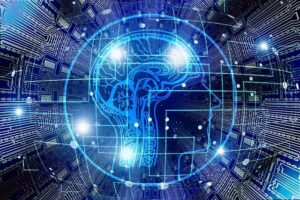Artificial Intelligence is the new door of technology
Artificial Intelligence has emerged as the new frontier in technology, opening doors to endless possibilities and transforming various aspects of our lives. AI refers to the development of intelligent machines that can perform tasks that typically require human intelligence. This rapidly evolving field encompasses a wide range of applications, from virtual assistants and autonomous vehicles to image recognition systems and predictive analytics.
One of the key advantages of AI is its ability to process and analyze massive amounts of data in real-time. Machine learning algorithms enable computers to learn from patterns and make predictions or decisions based on the information they have processed. This has revolutionized industries such as healthcare, finance, manufacturing, and marketing, among others.
In healthcare, AI Artificial Intelligence is being utilized for disease diagnosis, drug discovery, and personalized treatment plans. It enables doctors to analyze patient data, identify trends, and provide more accurate diagnoses. In finance, AI technology algorithms are employed for fraud detection, risk assessment, and algorithmic trading, enhancing the efficiency and security of financial systems.
Moreover, AI technology has revolutionized customer experiences through the development of chatbots and virtual assistants. These AI-powered tools can engage with users, answer queries, and provide personalized recommendations, enhancing customer satisfaction and streamlining business operations. In addition, AI-driven automation has the potential to transform industries by optimizing workflows, reducing errors, and increasing productivity.
However, as AI continues to advance, it also raises important ethical and societal considerations. The responsible development and deployment of AI systems must prioritize transparency, fairness, and accountability to ensure unbiased outcomes and protect individual privacy.
Its Types:
Artificial intelligence (AI) is a vast field encompassing various types of technologies and techniques. These different types of AI systems serve distinct purposes and have unique characteristics. Here are some prominent types of artificial intelligence:
- Narrow AI technology: Also known as Weak AI, Narrow AI refers to AI systems designed to perform specific tasks or solve specific problems. These systems excel in a narrow domain and are not capable of generalizing their knowledge to other areas. Examples include voice assistants like Siri and Alexa, recommendation systems, and image recognition software.
- General AI system: General AI, also known as Strong AI or Human-Level AI, refers to AI systems that possess human-like intelligence and can understand, learn, and perform any intellectual task that a human can do. General AI remains an aspiration and is yet to be fully realized.
- Machine Intelligence (Machine Learning): Machine learning is a subset of AI that focuses on enabling machines to learn from data without explicit programming. It involves the development of algorithms that can analyze and identify patterns in data, make predictions, and improve performance over time. Supervised learning, unsupervised learning, and reinforcement learning are common approaches in machine learning.
- Deep Learning technology: Deep learning is a subset of machine learning that utilizes artificial neural networks inspired by the human brain. These neural networks consist of multiple layers of interconnected nodes and can process vast amounts of data to recognize patterns and make complex decisions. Deep learning has achieved remarkable success in image recognition, natural language processing, and speech recognition.
- Cognitive Computational Intelligence: Cognitive computing combines AI techniques with knowledge representation, natural language processing, and machine learning to simulate human-like thinking and problem-solving capabilities. These systems can understand and interpret unstructured data, reason, learn, and interact with humans in a more intuitive and conversational manner.
- AI Robotics: Robotics combines AI with mechanical engineering to create intelligent machines that can interact with their environment. AI-powered robots can perform physical tasks, navigate complex spaces, and adapt to changing situations. They find applications in areas such as manufacturing, healthcare, and exploration.
It’s important to note that these types of AI are not mutually exclusive, and many AI systems incorporate elements from multiple categories. The advancement of AI continues to bring forth new types and applications, propelling technology into uncharted territories and shaping the future of various industries.
In conclusion, artificial intelligence represents a new era of technology that holds immense potential to revolutionize numerous industries and improve our daily lives. With ongoing research and innovation, AI will continue to open new doors, enabling us to tackle complex challenges, make informed decisions, and unlock unprecedented opportunities for progress.






